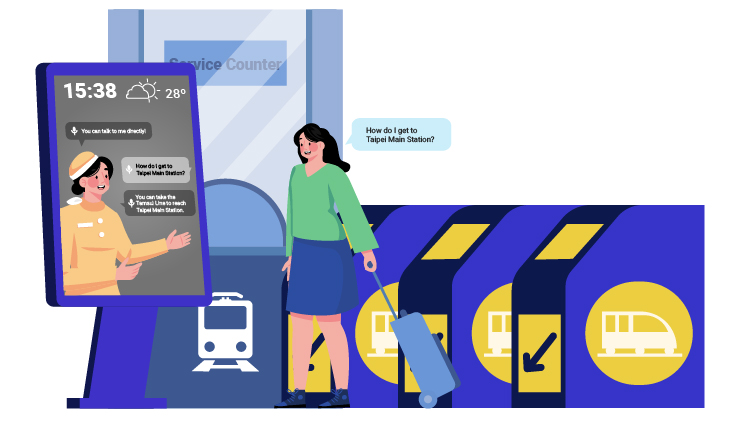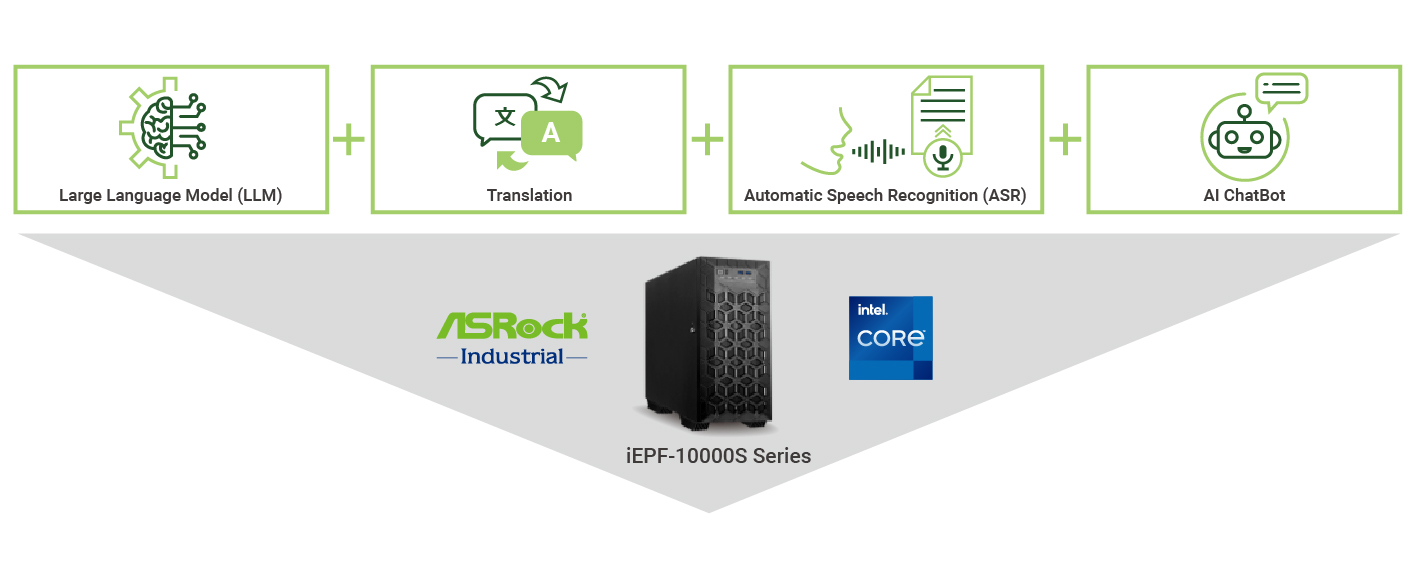At the heart of Taiwan’s bustling cities, the Mass Rapid Transit (MRT) stations serve as vital hubs, sustaining the nation's dynamic economic landscape and fostering productivity by facilitating the seamless movement of people worldwide. Catering to both residents and international visitors, the MRT offers convenient services for efficient and smooth transportation. Despite these strengths, current multilingual language support of on-site customer service is limited, resulting in communication barriers and inefficiencies. This limitation hampers Taiwan’s potential for global exposure through socio-economic development and tourism, hindering progress in regional integration, investment attraction, overseas tourism, and more.
Taiwan grapples with a dual challenge involving a shortage of multilingual talent and rising labor costs. The complexity is compounded by the need for proficiency in multiple languages concurrently, leading employers to enlist several language specialists simultaneously, causing a substantial increase in human resource expenses. Providing MRT employees with multilingual proficiency for bilingual customer services becomes a protracted and potentially costly endeavor. Furthermore, the challenge of securing ad-hoc sign-language support remains prevalent in most MRT stations, leaving inclusivity challenges unresolved for minority groups.
In response, AI ChatBots have begun integrating into customer service and support. However, the current landscape of AI voice customer service systems utilizing Large Language Models (LLMs) poses substantial challenges in terms of computing power when operating on edge systems for real-time multilingual translation and communication. The majority of AI LLMs are exceptionally large, depending on the robust computing capabilities of cloud servers rather than edge computing. This reliance on cloud computing renders it impractical to execute offline, high-speed, real-time processing on local machines while ensuring the utmost security and privacy.

